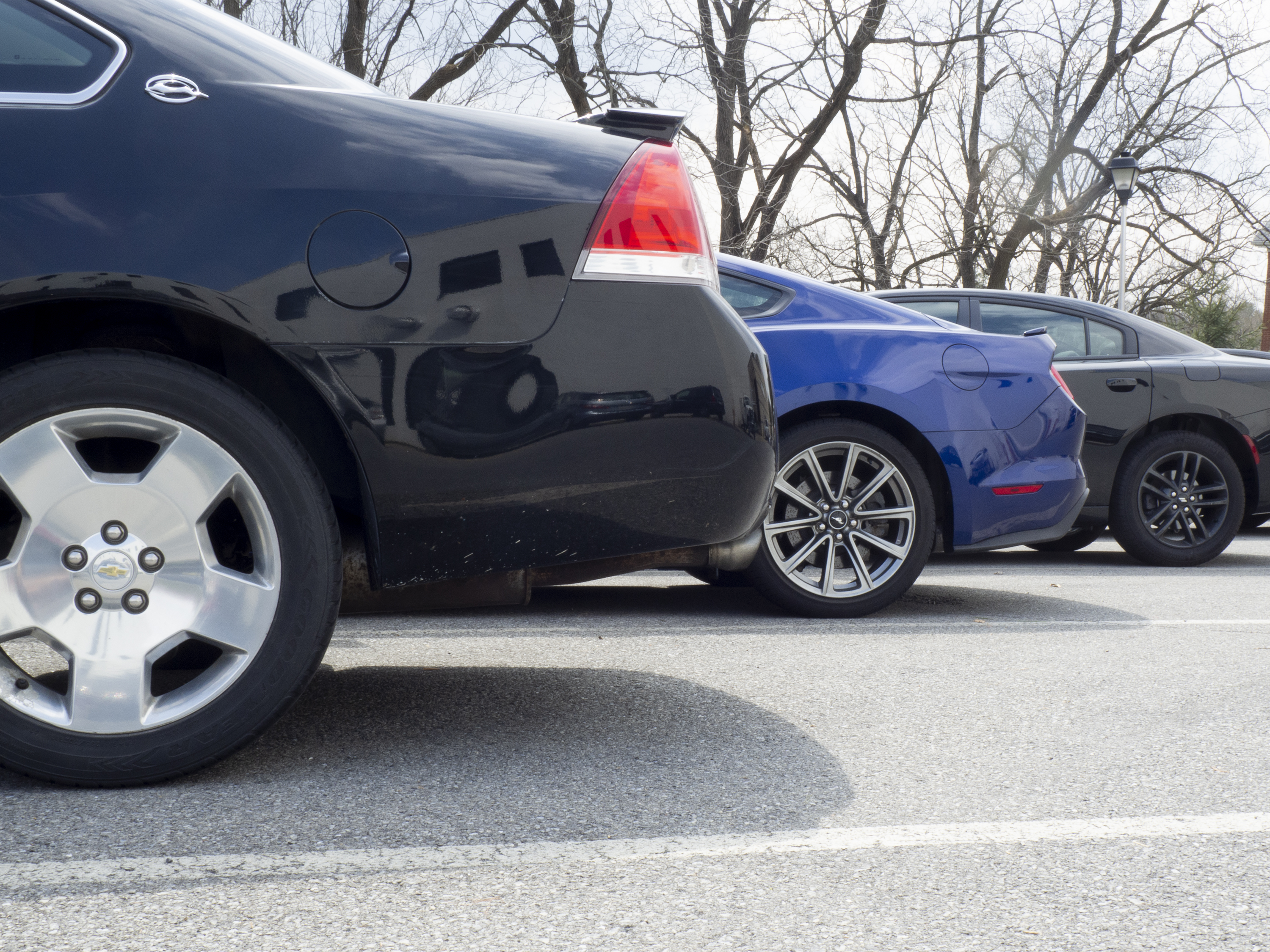Makenzie O’Brien ‘19 is in the driver’s seat of her 2013 smoky blue Nissan Altima rolling down
Allentown’s Albright Street. She is making her daily commute to Muhlenberg’s campus, which isn’t usually a trek, but the Ace-Bandage-wrapped boot she wears on her sprained left foot makes crutching the half mile to the New Science building an aggravating feat.
“Even though the parking lot isn’t all the way to where I need to end up on campus I would still rather drive the couple of blocks to try and find a space than get sweaty and tired on my crutches,” says O’Brien.
She hopes turning right on 23rd Street and left into the parking lot of Martin Luther Hall will hopefully result in the shortest possible hobble to class.
No free spaces.
“You can pretty much park in ML or by Robinson and often there are few spots in both of those places,” says O’Brien. “Everywhere else is as far as the off-campus apartments.”
There are 1,032 parking spots on our campus. They are filled by visitors, and the 1,275 students, faculty, and staff who have permits to legally park in designated lots according to Kevin Kennedy, a campus safety officer. The scattered spaces include about 588 spots designated for faculty and staff, 325 for students, plus a few for visitors, SODEXO employees, and handicapped access. But even with over 1,000 spaces for our relatively small 82 acre campus, local residents, students, faculty, staff, visitors and others find themselves in a daily battle for an often elusive (and legal) parking space.
Parking permits at Muhlenberg vary in price depending on the drivers’ position at the college. Each August, during the first week of classes faculty and staff, senior scholars, residential advisors, and presidential assistants register their vehicles online. Employee parking permits are free while students pay $55 for the school year.
This fee is small in comparison to other colleges and universities. At Penn State, students must pay $640 for a two semester pass, and students who want the same permit at Lehigh must dish out $420, according to the schools’ parking authority websites. Outside of Pa., students at the University of Delaware must pay $600 for a year-long parking pass. Although priced comparatively low, many Muhlenberg students might wonder how the college allows drivers to pay for permission to park in a lot when there are more permits than spaces available.
“I am not paying for the privilege to park, I am paying for the chance to park,” says Skyler Petrie ‘21. “And there is an even slimmer chance that I will actually get a spot in the lot that is closest to where I am going.”
Faculty of the college are less likely to grumble about the parking woes on campus due to a collaborative effort between the mathematics department, the provost’s office, campus safety and the Office of the President. The project, led by Dr. Allison Davidson — an assistant professor in the math department — has resulted in an organized parking arrangement for the college’s faculty.
“I was approached because of my background of being a statistician, but we did not actually use statistics to do this project,” Davidson explained. “We asked some questions: Are there enough spaces to accommodate all of the passes given out [to faculty]? What days and times would professors be on campus? Can we assign spots closest to professor’s offices?”
The answers to these questions were enough to determine that the school did have enough spaces, explained Davidson, but mostly because of the realization that each professor does not need their own space.
“When we gathered data asking when and at what times professors are mostly on campus we received answers that some may only be on campus certain days, like Monday, Wednesday and Friday. Some may only work on campus in the mornings or evenings,” said Davidson. Hence, the parking plan did not necessarily need to accommodate each professor with their own space.
Davidson simply worked with Muhlenberg’s existing space and now each professor is assigned to a lot based on where their office is, with another lot of assigned spaces dedicated for additional overflow capacity.
“Overall the project took about one semester,” Davidson said. “Ettinger was the trickiest building to coordinate because of it being in the middle of a couple of different lots.”
“I have to say that ever since Allison Davidson figured out how to give out parking passes to faculty and staff I haven’t had a problem,” said Dr. Michele Deegan, professor of political science.
Aside from being a part of the Weekly I also am involved on campus as a tour guide, and I play on the baseball team. Also, I study media & communication with a minor in political science. Post Muhlenberg I would ideally like to enter the sports media industry. Favorite GQ meal: Breakfast Bowl






















